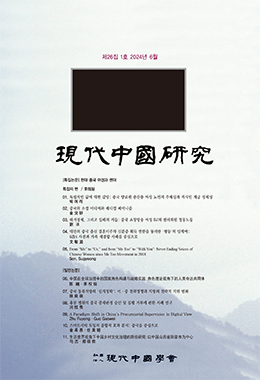角色理论强调角色认知与角色实践之间的相互作用, 并假设这种相互作用直接影响国家的战略选择和国际行动。本文利用角色理论分析中国在国际政治舞台上是如何认知自己的角色、选择并实施具体战略的。自1978年改革开放以来, 中国融入了世界资本主义经济系统, 经济和政治影响力持续扩大, 国家的身份和利益认知也经历了显著变化。这种认知的转变不仅影响了中国对国际秩序的看法, 也伴随着外交政策的调整, 以应对新的全球环境。中国从一个社会主义国家框架中, 逐渐将自己视为一个崛起的大国, 这种角色认知的变化促使其在全球治理领域积极参与并扩大其作为核心贡献者的影响力。自2012年提出“人类命运共同体”理念以来, 中国一直在努力构建一个更加平等、包容和互利的国际关系新秩序, 以促进共同发展。这不仅反映了中国对国际关系的独特理解, 也是其在全球治理中探索新型国际合作模式的一部分。通过“一带一路”倡议和亚洲基础设施投资银行的设立等方式, 中国参与全球治理的战略旨在实践“人类命运共同体”的理念。从角色理论的视角来看, “人类命运共同体”理念是中国认知其大国角色和国际责任的指南, 宣示其将在国际舞台上有效推动外交政策和国际合作。近年来, 中国在国际舞台上强调多边合作和共同成长, 展现出积极的角色扮演者态度。尽管外部社会对中国的动机和方式提出质疑, 但中国通过自己的认知框架来理解国际社会的秩序结构, 在此基础上确定自己的地位和角色, 并选择具体的外交政策。
Role theory emphasizes the interaction between role perception and role practice, assuming that this interaction directly influences a state's strategic choices and international actions. This paper utilizes role theory to analyze how China perceives its role, selects concrete strategies, and implements them on the international political stage. Since the reform and opening-up in 1978, China has integrated into the global capitalist economic system, continuously expanding its economic and political influence. Consequently, there have been significant changes in the country's identity and perception of its interests. This shift in perception has affected China's view of international order and necessitated adjustments in its foreign policy to adapt to the new global environment. Transitioning from a socialist state perceiving itself as a developing country, China has gradually embraced the role of a rising major power, striving to expand its influence as an active participant and key contributor in the realm of global governance. Since announcing the concept of a "Community of Shared Future for Mankind" in 2012, China has aimed to establish a more equal, inclusive, and mutually beneficial international order to promote common development. This reflects China's unique understanding of international relations and represents its efforts to explore new models of international cooperation in global governance. China's participation strategy in global governance, exemplified by initiatives like the Belt and Road Initiative and the establishment of the Asian Infrastructure Investment Bank, can be seen as the concrete practice of the "Community of Shared Future for Mankind" concept. From the perspective of role theory, the "Community of Shared Future for Mankind" concept serves as a guide for China to recognize its role as a major power and its international responsibilities, effectively promoting foreign policy and international cooperation on the global stage. Recently, China has demonstrated a proactive role by emphasizing multilateral cooperation and co-development in the international arena. Although external societies question China's motivations and methods, China perceives the structure of the international order through its own cognitive framework, determines its status and role within it, and selects specific foreign policies accordingly.


